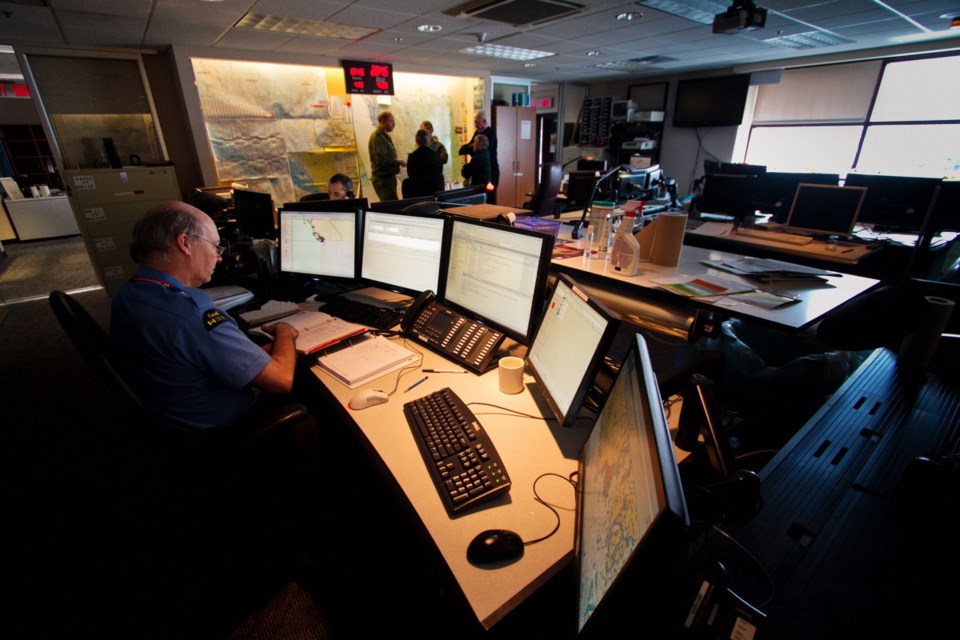A Canadian Coast Guard station in Prince Rupert that monitors marine distress calls went black for half an hour early Tuesday, raising concerns about the agency’s reliance on new technology and its plan to close three other stations in B.C.
The coast guard confirmed that the marine communications centre was unable to transmit or receive radio calls from 2:34 a.m. to 3:10 a.m.
The agency said it activated backup plans, got a technician on site within 30 minutes and deemed its new communications system fully operational again by 3:30 a.m.
“Outages occur from time to time, and are not unique to the new system being installed at [marine communications] centres across the country,” the Canadian Coast Guard said in a statement to the Times Colonist.
The union representing communications staff, however, said the case highlights risks associated with the federal government’s plan to close three of five marine communications centres in B.C. and monitor all marine traffic on the coast from just two stations, in Victoria and Prince Rupert. The Ucluelet centre closed this week, with Vancouver and Comox centres slated to follow.
“Part of the rationale that they’re giving is that, ‘Well, we have this great software program,’ ” said Gavin McGarrigle, B.C. area director for the Unifor union. “Here we have a simple software glitch that could have resulted in some very serious consequences.”
The Prince Rupert centre is the first in B.C. to go live with new technology that the coast guard says will allow officers to monitor larger areas from fewer centres.
The centres broadcast weather and navigational warnings, regulate marine traffic and monitor distress and safety calls.
Coast guard assistant commissioner Roger Girouard acknowledged in February that there have been a few “glitches” and delays with the new system. But he said the technology has been approved for use in the field.
“I don’t see that we’re going to leave gaps and glaring safety issues,” he told the Times Colonist at the time. “I think we’re actually going to get better at doing what we do.”
During the outage in Prince Rupert this week, the coast guard notified the Joint Rescue Co-ordination Centre in Victoria, which instructed all coast guard ships and bases to monitor emergency channel 16 for a potential distress call in the area. Mariners were also alerted to the outage through a “notice to shipping,” the coast guard said.
“Technical staff are working to determine the root cause of the outage to prevent reoccurrence. The Canadian Coast Guard is confident in the new technology, which has been tested extensively.”
But McGarrigle questioned the decision to push ahead with closing the Vancouver communications centre, despite the fuel spill in English Bay two weeks ago and the Prince Rupert outage.
“This is a triumph of ideology over common sense, and the people of British Columbia are calling for these stations to stay open,” McGarrigle said. “I don’t know why the Harper government insists on doing this. I think it just demonstrates that they don’t understand our coast and our province.”



